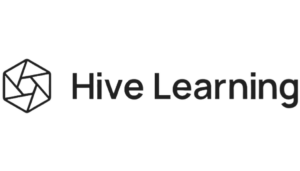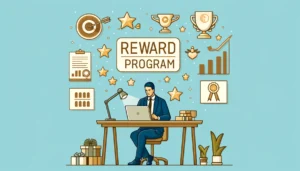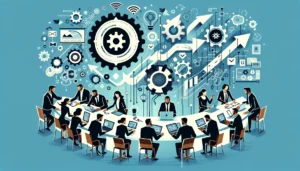HRD Roundtable Report: Changing Expectations: Strategies to Refresh Employee Engagement for 2022 and Beyond
- 9 Min Read
As we kick off another new year, we have the opportunity to both reflect and look ahead. What did we learn in 2021 about the business landscape, about our organisations and about our employees? The changing environment (social, economic and political) means that employees have different expectations of their relationship with their employers – requiring […]
- Event Types
- Date of Event: Jan 20, 2022


As we kick off another new year, we have the opportunity to both reflect and look ahead. What did we learn in 2021 about the business landscape, about our organisations and about our employees? The changing environment (social, economic and political) means that employees have different expectations of their relationship with their employers – requiring different engagement strategies and experiences.
With this unpredictable talent market, organisations can no longer afford to react slowly to changing expectations. How can we design employee engagement strategies that are agile, flexible and adaptive to both the needs of the business and of employees?
On Thursday 20th January 2022, HRD hosted a group of HR leaders to discuss these questions in a virtual roundtable. Led by Jane Roques-Shaw, Global Director, Employee Experience, Dentsu and supported by Dan Rodgers, VP Product Strategy, Workday, the group shared their experiences and challenges, as well as solutions and strategies they had developed to tackle them. The session was conducted under Chatham House rules so while this write-up will include key discussion points and takeaways, all participants are anonymized.
From Jane Roques-Shaw, moderator:
Thanks so much for joining the roundtable discussion last week. Personally, I took away some great insights – I immediately added “deconstruct processes” to my to do list for example! There was much focus on the importance of sustainability, what flexible working means for different workforces, reward and recognition, DEI, identifying skills for the future, engaging with managers and determining what it is our employees really want and need. The main take away for me though was reminding ourselves we need to be truly authentic in whatever we do. I hope we keep in touch as I’d love to hear how you progress your employee engagement plans throughout the year.
Are we actually seeing a shift in engagement and expectation, within organisations or in talent pools? Where are the emerging challenges?
The resounding answer was yes, in various intersecting ways.
Flexibility is a key area across the board. One participant for example, shared the tension created by the plans to return to the office 3 days a week. For some of their employees, this isn’t an acceptable level of flexibility after almost 2 years working from home. Many organisations also have additional complexities to work through when considering flexible working, as not everyone is an ‘office worker’. How do you manage a workforce that is a mix of those than can work from home, and those that have to be on-site in order to function – essentially a two-tier workforce.
Reward and recognition is also seen as a major factor. We’re currently in a candidate driven market, where employees can find big pay increases elsewhere fairly easily. Many businesses focus on expanding traditional benefits options – e.g., what can they do around better paternity leave or childcare support? However, it’s important to remember the variety in your workforce. There is no universal employee, and we need to understand our audiences to know what kind of benefits will resonate. This is also something that needs to be considered after a demographic shift. One participant gave the example of their recent push for better gender diversity, hiring several hundred more women engineers. What does this mean for what they should be offering?
Lifelong learning and sustainable employability was another common theme. Employees are looking for job security and employers that can offer that will do well in retention. This could look like supporting early skills training (apprenticeship schemes, covering tuition fees etc.) or specialized on the job training to help transition into having future ready skills.
The group is also seeing a large increase in candidates asking about broader sustainability agendas. They’re looking for credibility in the space, not just a basic plan – for example, what is the organisation doing to keep their product viable long term? What are they giving back to society? We also see this candidate interest in other governance areas such as DE&I.
Authenticity is also key. What is the lived culture of the organisation? One participant reported candidates increasingly asking in interviews specific questions about what it is like to work there. Why do they like it? Why do they stay?
Engagement is increasingly complex, as employees grapple with various factors vying for their attention. How do we remove that complexity for them and make sure that we focus on the factors that really create value for the organisation? How can we ensure we’re getting the basics rights?
How can we bring culture to life in a hybrid working model? What’s working?
Finding ways to recreate the ‘watercooler’ moments is still front of mind. The group shared various successes – for example a book club that evolved out of informal channels on Yammer. This club enabled a social outlet with work colleagues that had no connection to work. The organisation didn’t create the club, but crucially, they did create permission and space for it to come together.
Opportunity for connection between levels is also important. When the CEO or managers can no longer walk the floor, how can they build connections with the rest of the business? Another example was a schedule for the senior leadership team to host drop-in sessions with more junior team members. Once past the initial nervousness of oversharing, employees are becoming more comfortable in breaking down barriers. The next step is ensuring that the feedback they receive during these sessions is captured and used to make real change in the business.
Organized fun can be difficult to actually make fun and is even harder to manage over video calls than in person. The group had several ideas on how to bring the fun back into workplace interaction. We discussed the example of a 24hr call-in, hosted by volunteers from around the globe to offer something for everyone, and at a time that was convenient for them. For some slots, this meant running a quiz, for others it was sharing favourite recipes. Another participant contributed their experience with working with a charity partner – running team challenges that contributed to a donation goal. This also served to really engage employees with a team mission and spirit, while creating a bond that wasn’t just work based.
A definite positive within the discussion was that in some ways connection is actually easier than ever. One HR leader described how their executive team members that previously were not utilizing tools like Microsoft teams are now much more online and engaged. For example, one general manager hosted an open Q&A live, taking questions from all team members and answering authentically and off-script. We’ve all heard the pandemic described as a leveler – even though even circumstance is unique, there is an understanding of uncertainty and anxiety of the time we’ve been living through. When leadership teams are bought in on this understanding and shared experience, it can be really powerful. What’s important moving forward is that we don’t allow corporate memory to forget.
There’s a big opportunity in early careers to invest and retain young people. Joining work remotely and never meeting anyone in person or experiencing the office environment makes it difficult to feel part of something tangible. Strategies like the Kickstart scheme helps organisation fully engage with early careers and guide them in a way that grows a connection with the business long term. At the same time, we need to also be aware of the new skills that hybrid and remote working make necessary but are hard to pick up the way you would when shadowing someone in person. For example, what should your background look like in a video call (with allowance for individual circumstance)? What level of formally dressed should you be working from home? Mentor programmes can have a lot of benefit here.
Do we actually understand what employees want and need? What are we doing about it?
A lot of the trends discussed so far are familiar – we’ve faced them before but haven’t been able to solve them yet. For example, if we’re seeing a massive skills gap but employees often cite the lack of L&D opportunities as a reason to leave…why is there still this disconnect? There is an argument that HR and organisations need to do more to turn goals into action, and scrap some of the processes and policies that are clearly not working. How can we build around engagement from the ground up?
So, what does starting from scratch look like? It’s difficult to do but we had some great examples of making more radical interventions. One participant is doing away with CVs and is asking candidates to complete behavioural and skills-based assessments to vet their suitability for the role and engage them with the culture of the organisation at an early stage. Another is working on creating a 1-page contract, distilling down to the important bits that really resonate with people.
Another HR leader shared their move to change the resignation process. They now have a form that employees need to complete as part of the resignation process that specifically asks why someone is leaving. Some of the answers go to the manager and some to HR, to encourage people to be as honest as they can. This is without the pressure of the exit interview but as an expected part of the leaving process. Now they have an answer for why every single person leaves the company and they can see trends and make adjustments.
Understanding and conveying data will be an important skillset for HR moving forward. Are we able to show the trends that affect different demographics, and find where the pain points are? Can we point to the next steps, rather than just passing on swathes of data? Where specifically do we need to invest more?
Finally, it is important to acknowledge that there is a glass ceiling in the impact HR teams can have on engagement on their own. Managers and leadership need training beyond the current standard leadership training, in order to also understand what the engagement data means and how to use it to support their teams.
To learn more about Workday Peakon Employee Voice, please click here.








